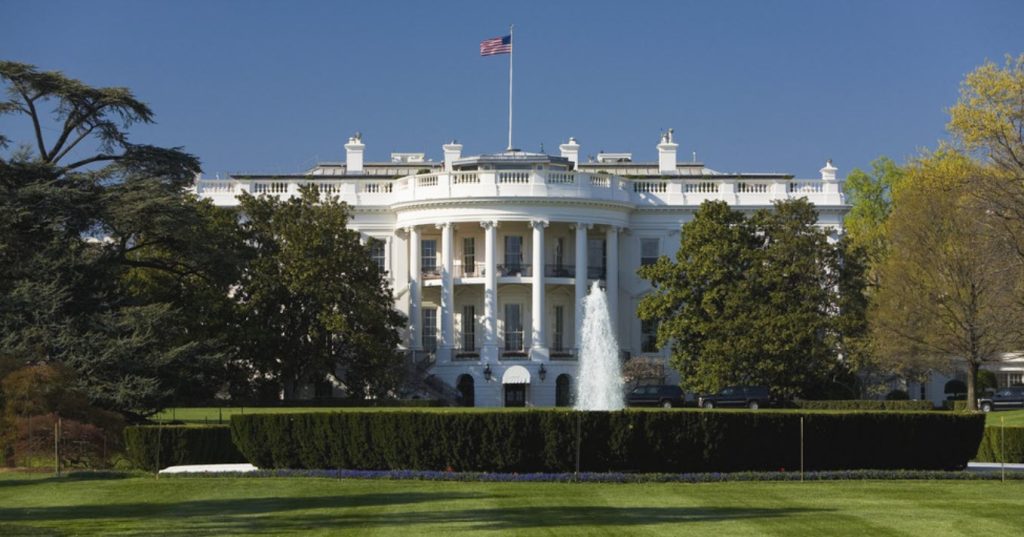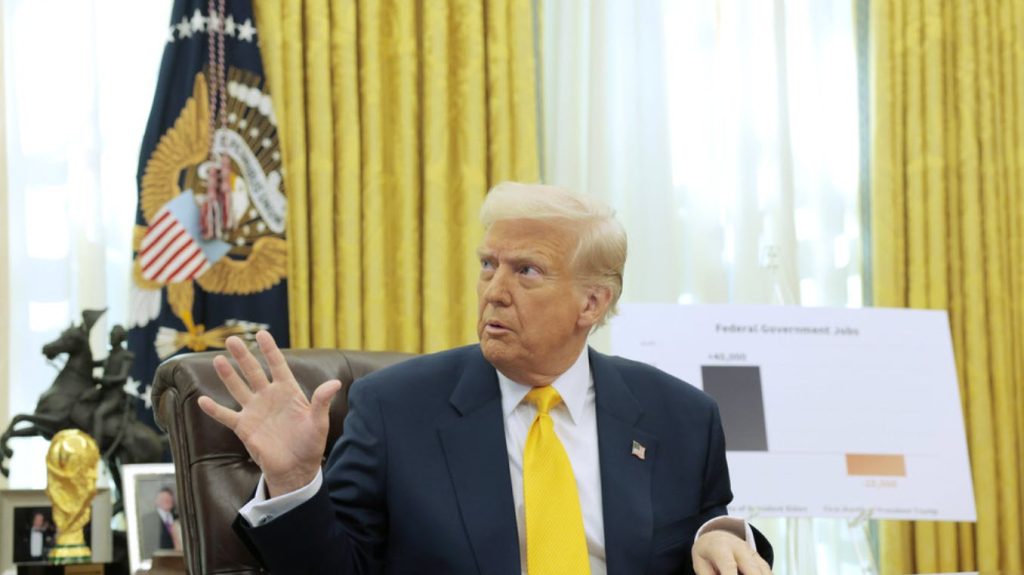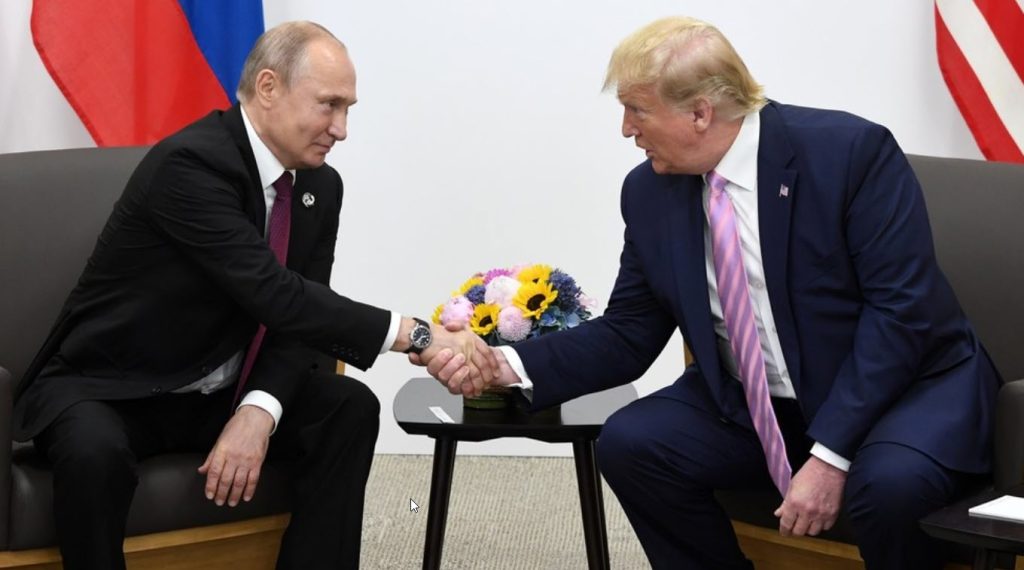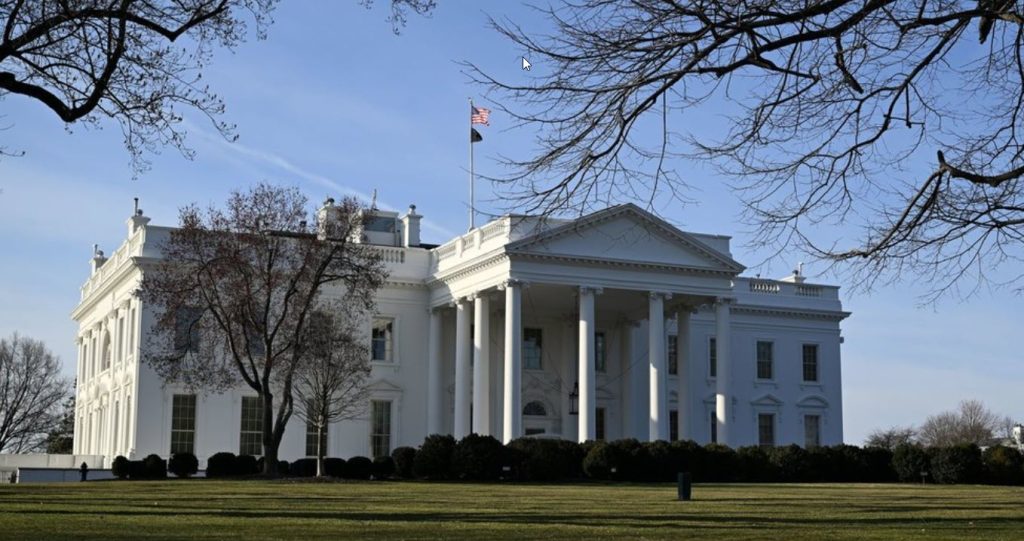Kremlin releases Putin-Trump Phone Call Summary (FULL STATEMENT)

by RT [3-18-2025 published].
(This is definitely encouraging. What I find interesting is that all of these articles were on the Home page of RT within a few hours. I went looking on Newsmax and other US media and only found fragments. — RAD)
The two leaders addressed key issues, including a proposed 30-day ceasefire, a prisoner exchange, and maritime security.
Russian President Vladimir Putin and his US counterpart Donald Trump have held a phone conversation lasting over two hours, discussing a peaceful resolution to the Ukraine conflict.
The Kremlin reported that the two leaders spoke about a suggested 30-day ceasefire, a prisoner exchange, and maritime security, with Putin responding positively to Trump’s proposals. Both leaders expressed interest in normalizing US-Russia relations, agreeing to continue discussions on global security, economic cooperation, and even cultural exchanges like NHL-KHL hockey matches.
The Kremlin has published a summary on the outcome of the call:
A phone conversation between Vladimir Putin and US President Donald Trump took place on March 18, 2025.
Reaffirming his commitment to a peaceful resolution of the conflict, President Putin expressed readiness to work closely with American partners on a thorough and comprehensive settlement. He emphasized that any agreement must be sustainable and long-term, addressing the root causes of the crisis while considering Russia’s legitimate security interests.
Regarding President Trump’s initiative for a 30-day ceasefire, the Russian side highlighted key concerns, including effective monitoring of the ceasefire across the entire front line, halting forced mobilization in Ukraine, and stopping the rearmament of its military. Russia also noted serious risks due to Kiev’s history of undermining previous agreements and drew attention to terrorist attacks carried out by Ukrainian militants against civilians in the Kursk region.
It was emphasized that a crucial condition for preventing further escalation and working toward a political-diplomatic resolution is the complete cessation of foreign military aid and intelligence sharing with Ukraine.
In response to Trump’s recent request to ensure the safety of Ukrainian troops encircled in Kursk Region, Putin confirmed that Russia is guided by humanitarian considerations. He assured his counterpart that Ukrainian soldiers who surrender will be granted safety and treated in accordance with Russian laws and international humanitarian norms.
During the conversation, Trump proposed a mutual agreement between both sides to refrain from striking energy infrastructure for 30 days. Putin welcomed the initiative and immediately instructed the Russian military to comply.
Putin also responded constructively to Trump’s proposal regarding maritime security in the Black Sea, and both leaders agreed to initiate negotiations to further refine the details of such an arrangement.
Putin informed Trump that on March 19, Russia and Ukraine would conduct a prisoner exchange involving 175 detainees from each side. Additionally, as a goodwill gesture, Russia will transfer 23 severely wounded Ukrainian soldiers who are currently receiving medical treatment in Russian hospitals.
Both leaders reaffirmed their commitment to continuing efforts toward resolving the Ukraine conflict bilaterally, incorporating the proposals discussed. To facilitate this, Russian and American expert groups will be established.
Putin and Trump also discussed broader international issues, including the situation in the Middle East and the Red Sea region. They agreed to coordinate efforts to stabilize crisis areas and enhance cooperation on nuclear non-proliferation and global security, which, in turn, would improve the overall state of US-Russia relations. A positive example of such cooperation was their joint vote at the United Nations on a resolution regarding the Ukraine conflict.
Both leaders expressed mutual interest in normalizing bilateral relations, recognizing the shared responsibility of Russia and the United States in ensuring global security and stability. In this context, they explored various areas for potential cooperation, including discussions on mutually beneficial economic and energy partnerships.
Trump supported Putin’s idea of organizing hockey matches in the US and Russia between players from the NHL and KHL.
The presidents agreed to remain in contact on all discussed matters.
Trump, Putin agree on ‘energy and infrastructure ceasefire’ – White House

by RT [3-18-2025 published].
The US and Russian presidents have also found common ground on curbing strategic weapons proliferation.
US President Donald Trump and Russian President Vladimir Putin have agreed that the first step towards ending the Ukraine conflict should be an “energy and infrastructure ceasefire,” White House Press Secretary Karoline Leavitt has revealed. The leaders reached the agreement during a 2.5 hour phone conversation on Tuesday.
According to the readout of the phone call published on X by Leavitt on Tuesday, both leaders concur that the conflict must conclude with a lasting peace. They also emphasized the importance of strengthening bilateral relations.
“The leaders agreed that the movement to peace will begin with an energy and infrastructure ceasefire, as well as technical negotiations on implementation of a maritime ceasefire in the Black Sea, full ceasefire and permanent peace,” the transcript reads.
The Kremlin has confirmed that Putin supported Trump’s proposal for Russia and Ukraine to halt strikes on energy infrastructure for 30 days, and instructed his military accordingly.
According to the readout, Moscow and Washington have agreed to hold relevant negotiations “immediately in the Middle East.”
Karoline Leavitt, @PressSec (X): Readout of President Donald J. Trump's Call with President Vladimir Putin:
Today, President Trump and President Putin spoke about the need for peace and a ceasefire in the Ukraine war. Both leaders agreed this conflict needs to end with a lasting peace. They also stressed the need for improved bilateral relations between the United States and Russia. The blood and treasure that both Ukraine and Russia have been spending in this war would be better spent on the needs of their people.
This conflict should never have started and should have been ended long ago with sincere and good faith peace efforts. The leaders agreed that the movement to peace will begin with an energy and infrastructure ceasefire, as well as technical negotiations on implementation of a maritime ceasefire in the Black Sea, full ceasefire and permanent peace. These negotiations will begin immediately in the Middle East.
The leaders spoke broadly about the Middle East as a region of potential cooperation to prevent future conflicts. They further discussed the need to stop proliferation of strategic weapons and will engage with others to ensure the broadest possible application. The two leaders shared the view that Iran should never be in a position to destroy Israel.
The two leaders agreed that a future with an improved bilateral relationship between the United States and Russia has huge upside. This includes enormous economic deals and geopolitical stability when peace has been achieved.
Aside from Ukraine, the two heads of state are said to have discussed the situation in the Middle East as well as potential cooperation with a view to preventing future conflicts in the region.
Another topic high on the two leaders’ agenda was the “need to stop proliferation of strategic weapons” globally, according to the White House press secretary.
“The two leaders agreed that a future with an improved bilateral relationship between the United States and Russia has huge upside,” including but not limited to “enormous economic deals and geopolitical stability,” the readout concludes.
Trump opens up on phone call with Putin

by RT [3-18-2025 published].
The US president has called the conversation “good” and “productive” after both men agreed an immediate ceasefire on energy infrastructure should take place.
US President Donald Trump has described his phone call with Russian President Vladimir Putin as “good” and “productive,” while confirming both men said an immediate energy infrastructure ceasefire should take place.
Both Trump and Putin agreed to “[work] quickly to have a complete ceasefire and, ultimately, an end” to hostilities, the US leader said in a post on Truth Social.
“Many elements of a Contract for Peace were discussed, including the fact that thousands of soldiers are being killed, and both President Putin and President Zelenskyy would like to see it end,” Trump added.
Donald J. Trump, @realDonaldTrump (TruthSocial): My phone conversation today with President Putin of Russia was a very good and productive one. We agreed to an immediate Ceasefire on all Energy and Infrastructure, with an understanding that we will be working quickly to have a Complete Ceasefire and, ultimately, an END to this very horrible War between Russia and Ukraine. This War would have never started if I were President! Many elements of a Contract for Peace were discussed, including the fact that thousands of soldiers are being killed, and both President Putin and President Zelenskyy would like to see it end. That process is now in full force and effect, and we will, hopefully, for the sake of Humanity, get the job done!
He concluded by claiming that the peace process “is now in full force and effect,” and that it “will, hopefully, for the sake of humanity, get the job done.”
The Kremlin earlier confirmed that Putin supported Trump’s proposal for Russia and Ukraine to halt strikes on energy infrastructure for 30 days, and instructed his military accordingly. The leaders reached agreement on the partial truce during the 2.5-hour call.
Putin also informed Trump that Russia and Ukraine would conduct a prisoner exchange on Wednesday, based on a 175-for-175 formula. He also responded constructively to Trump’s initiative on maritime security in the Black Sea, the Kremlin has confirmed.
At the same time, the Russian president put forward several conditions for a complete end of hostilities, including the cessation of military aid and intelligence sharing with Ukraine, according to the Kremlin’s statement.
The two leaders are also said to have discussed the situation in the Middle East and preventing future conflicts in the region.
Trump-Putin phone call: What has changed since the last time they talked?

by RT [3-18-2025 published].
In five weeks, the prospect of peace in Ukraine has grown closer than at any point in recent years.
Russian President Vladimir Putin and his US counterpart Donald Trump will hold their second direct phone conversation in as many months on Tuesday. The conversation could possibl lead to a ceasefire in the Ukraine conflict.
Their calls scheduled for 1300 GMT, comes after weeks of intense diplomatic engagement between Moscow and Washington, as well as Kiev and its US and European backers. Here’s an overview of key developments since Putin and Trump last spoke on February 12.
Pivot towards normalcy
Upon beginning his second presidential term in January, Trump departed from the policy of his predecessor, Joe Biden, who sought the diplomatic “isolation” of Russia in response to its involvement in the Ukraine conflict.
Trump administration officials argue that mature statesmanship involves dialogue with both allies and adversaries, pointing to historic US-Soviet interactions during the Cold War.
Reviving diplomacy
On February 18, senior diplomats from Russia and the US met in Saudi Arabia to address the breakdown in communications. They agreed to normalize the operations of their diplomatic missions, which had previously been hindered by mutual restrictions.
A follow-up meeting in Türkiye a week later led to tangible progress, as the US accepted Aleksandr Darchiev as Russia’s new ambassador to Washington. Darchiev, previously head of the Russian Foreign Ministry’s North America Department, represented Moscow during the talks in Istanbul.
Pressure on Ukraine
Central to Trump's diplomatic reset with Russia has been his refusal to continue Biden’s commitment of indefinite support for Kiev. The new US administration now emphasizes that Ukraine must be willing to compromise to end the conflict.
Ukraine’s Vladimir Zelensky initially resisted this shift. During a tense meeting at the White House on February 28, he openly challenged Trump’s approach to mediation, prompting the Ukrainian delegation’s abrupt departure and a temporary suspension of US aid and intelligence sharing.
Kiev has since moderated several key demands, notably dropping its insistence on Western security guarantees as a prerequisite to negotiations. After bilateral discussions in Jeddah last week, Zelensky publicly endorsed an unconditional 30-day ceasefire.
Kursk defeat
Ukraine's negotiating position has been further weakened by battlefield setbacks in Russia’s Kursk Region, where Moscow’s forces have largely expelled Ukrainian troops following an incursion in August 2024. The offensive, which has cost Kiev over 68,000 troops killed, wounded or taken prisoner, was aimed at gaining leverage for peace negotiations by seizing internationally recognized Russian territory.
However, following Russia’s recent liberation of the town of Sudzha – once pivotal for Ukrainian military operations – Kiev declared its objectives in the incursion “achieved.” The Ukrainian military maintains its forces withdrew from the area in an orderly way and denies Russian and American assertions of near-encirclement.
Temporary ceasefire
Putin has expressed support for Trump’s proposal for a 30-day ceasefire but emphasized that Moscow will not permit Kiev to exploit the pause for military regrouping or reinforcement. Russia insists any suspension of hostilities must include freezing arms deliveries and halting forced conscription in Ukraine.
Ukrainian officials, alongside several Western European leaders, have alleged Putin opposes a ceasefire, urging Trump to retaliate by increasing military aid and sanctions against Russia.
Some media reports criticized Moscow for allegedly disrespecting Trump by making his special envoy, Steve Witkoff, “wait eight hours” for a meeting with Putin – a claim the US president has dismissed as “fake news.”
US confirms Putin-Trump talks

by RT [3-18-2025 published].
Putin has concluded his phone conversation with Trump, Kremlin spokesman Dmitry Peskov said.
Russian President Vladimir Putin has concluded a lengthy phone conversation with his US counterpart Donald Trump, Kremlin spokesman Dmitry Peskov has told TASS. The two leaders were engaged in a call of some 2.5 hours, from approximately 10am EDT on Tuesday.
The conversation marked the second time the two leaders have spoken by phone since Trump took office in January. They are believed to have discussed a potential ceasefire deal for the Ukraine conflict.
According to White House Deputy Chief of Staff Dan Scavino, who tweeted during the call, the conversation was “going well.”
The White House has also confirmed that Trump will speak to the press after concluding the call.
Tuesday’s engagement came after the US unveiled a 30-day ceasefire initiative, following a meeting with Ukrainian representatives in Saudi Arabia.
Putin has since stated that he is open to the idea of a truce but has demanded that key issues be addressed beforehand. These include the question of what to do with the Ukrainian troops encircled in Russia’s Kursk Region as well as guarantees that Kiev would not use the truce to rearm and replenish its ailing ranks.
Previously, Trump said he expected to make significant progress in establishing a ceasefire during the phone call with Putin, stating that they would discuss a number of topics, including “land” and “power plants.”
Putin and Trump’s call on February 12 marked the first time that the leaders of Russia and the US had spoken in years. It was followed by high-level talks in Saudi Arabia on February 18, where Washington and Moscow agreed to assign teams to work on resolving the Ukraine conflict, restore embassy operations, and address other points of contention in bilateral relations.
Since then, additional discussions have been held in Istanbul, focusing on diplomatic funding and a proposal from Moscow to reinstate direct flights.